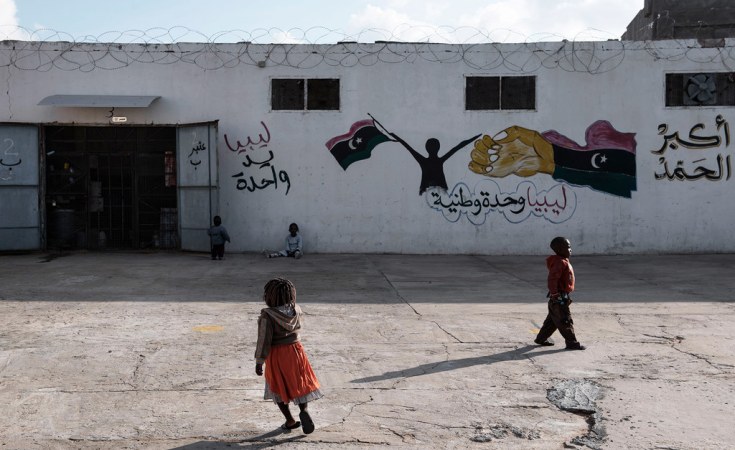Missed Opportunity to Tackle EU Responsibility in Migrant Rights Violations
The contrast between the resolution on Libya adopted this week at the UN Human Rights Council (HRC) and the UN Fact-Finding Mission's final report detailing violations and abuses in Libya is staggering.
On the one hand, UN experts documented in the report a "wide array of war crimes and crimes against humanity" against Libyans and migrants stranded in Libya, pointed out that the EU-backed Libyan Coast Guards were among main culprits committing crimes against migrants, and called on the EU to stop their support.
On the other hand, the HRC's feeble resolution, instead of insisting on accountability for abuses, limited itself to supporting UN capacity-building and technical assistance to the government in Tripoli.
How did that happen? The Libya resolution was drafted by the Libyan government itself - an established practice at the HRC that is abused by governments looking to evade scrutiny. Instead of strengthening the text that Libya drafted, the EU proposed only marginal tweaks.
Italy and Malta even gave their formal blessing to Libya's toothless draft by formally co-sponsoring it.
The resolution is a double failure for the EU. First, a failure to apply the same standards across situations of grave human rights violations and to support accountability where international crimes are documented.
Second, a failure to acknowledge the Fact-Finding Mission's conclusion that its key partners in Libya are committing crimes against humanity. Instead, the EU "took issue" with findings criticizing the EU by saying its cooperation with Libya aims at strengthening migration management and respect for human rights, and acquiesced in a resolution that buried any relevant follow-up reporting process to the UN report.
The EU should urgently change course. It should endorse and push for implementation and follow-up to the report recommendation and that of the UN Human Rights chief that the Human Rights Council should at a next session establish an independent mechanism to monitor human rights violations in Libya.
The EU should also suspend cooperation with Libyan authorities and implement strict human rights due diligence in its funding to third countries until they stop sending people to places where they face abuse and inhumane detention conditions. Every day the EU ignores well-documented and increasing evidence of crimes by entities it supports in Libya, it becomes even more complicit in abuses in the Mediterranean and in Libya.
Philippe Dam, EU Director, Advocacy


